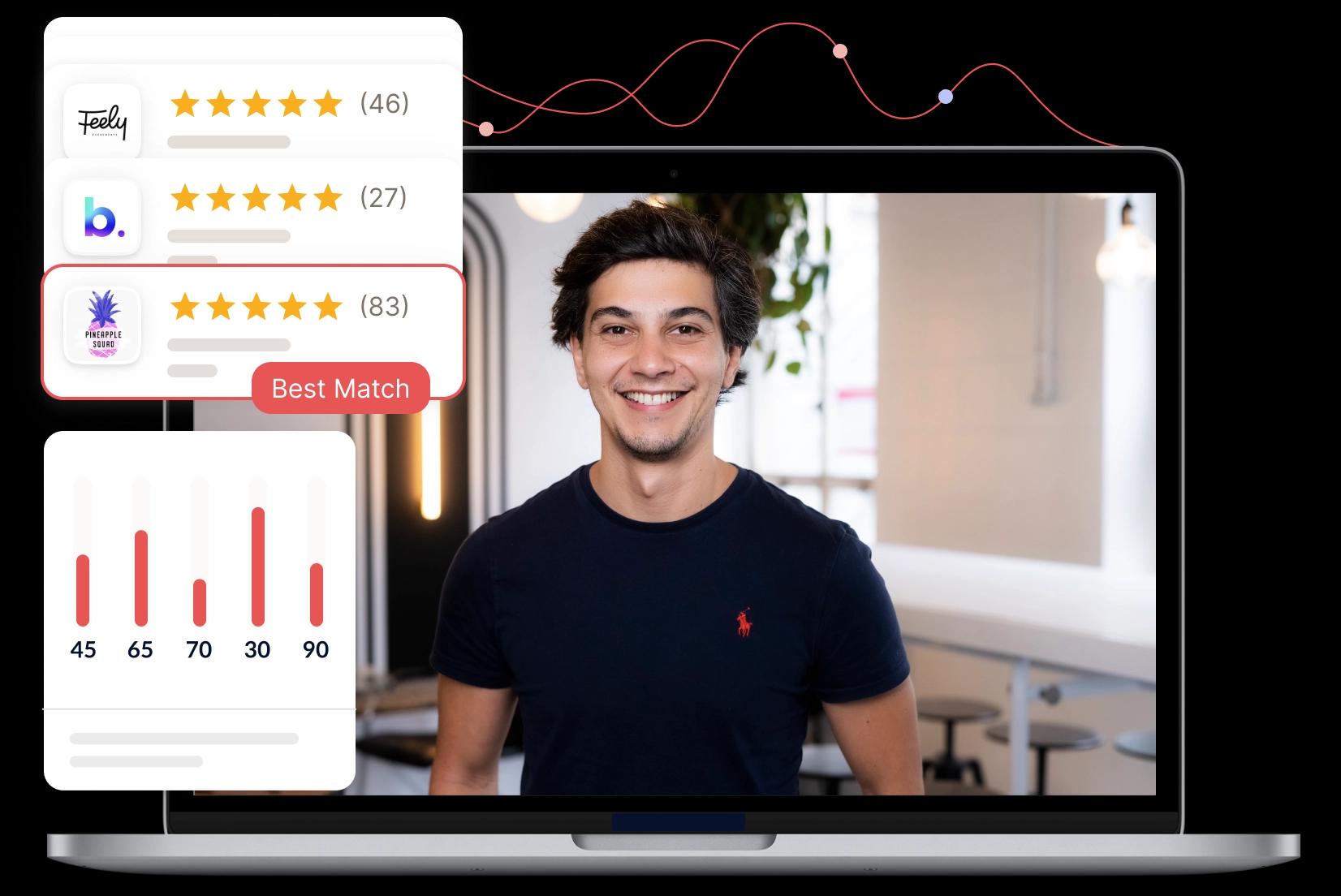List of the top Android App Development Agencies in Rome
- Award-winner9 works in Android App DevelopmentActive in Rome, ItalyFrom €1000 for Android App Development
- RecommendedAward-winner2 works in Android App DevelopmentActive in Rome, ItalyFrom €1000 for Android App Development
- RecommendedAward-winnerNo work in Android App DevelopmentActive in Rome, ItalyFrom €1000 for Android App Development
- RecommendedAward-winnerNo work in Android App DevelopmentActive in Rome, ItalyFrom €5000 for Android App Development
- (0 review)
Uniamo tecnologia e immaginazione per aiutarti in questa era di trasformazione digitale.
No work in Android App DevelopmentActive in Rome, ItalyFrom €1000 for Android App Development - Award-winner2 works in Android App DevelopmentActive in Rome, ItalyFrom €10000 for Android App Development
- RecommendedAward-winnerNo work in Android App DevelopmentActive in Rome, ItalyFrom €1000 for Android App Development
- 4.9(6 reviews)
AnvilEight provides web & mobile development for end-to-end product development with Python & Django
RecommendedAward-winner4 works in Android App DevelopmentActive in Rome, ItalyFrom €1000 for Android App Development - Award-winner1 work in Android App DevelopmentActive in Rome, ItalyFrom €15000 for Android App Development
- No work in Android App DevelopmentActive in Rome, ItalyFrom €1000 for Android App Development
- (0 review)No work in Android App DevelopmentActive in Rome, ItalyFrom €1000 for Android App Development
- RecommendedAward-winner9 works in Android App DevelopmentActive in Rome, ItalyFrom €5000 for Android App Development
- RecommendedAward-winnerNo work in Android App DevelopmentActive in Rome, ItalyFrom €1000 for Android App Development
- No work in Android App DevelopmentActive in Rome, ItalyFrom €5000 for Android App Development
- No work in Android App DevelopmentActive in Rome, ItalyFrom €800 for Android App Development
- RecommendedAward-winnerNo work in Android App DevelopmentActive in Rome, ItalyFrom €1000 for Android App Development
- 5(20 reviews)
#TeamEBS - a Bespoke Software Development Group that brings eCommerce to the next level
RecommendedAward-winnerNo work in Android App DevelopmentActive in Rome, ItalyFrom €1000 for Android App Development - 4.9(8 reviews)
Genau Media is “Exactly!” what you need for the peace of mind of working with a full service Agency.
RecommendedNo work in Android App DevelopmentActive in Rome, ItalyFrom €1000 for Android App Development - RecommendedNo work in Android App DevelopmentActive in Rome, ItalyFrom €800 for Android App Development
- RecommendedAward-winnerNo work in Android App DevelopmentActive in Rome, ItalyFrom €1000 for Android App Development
